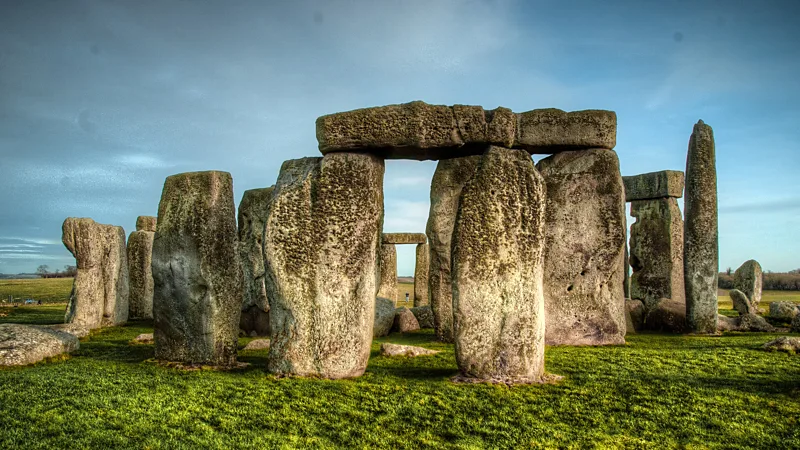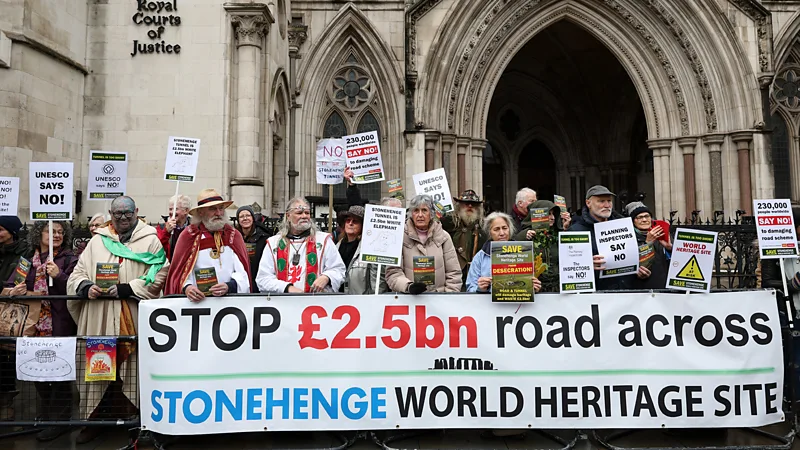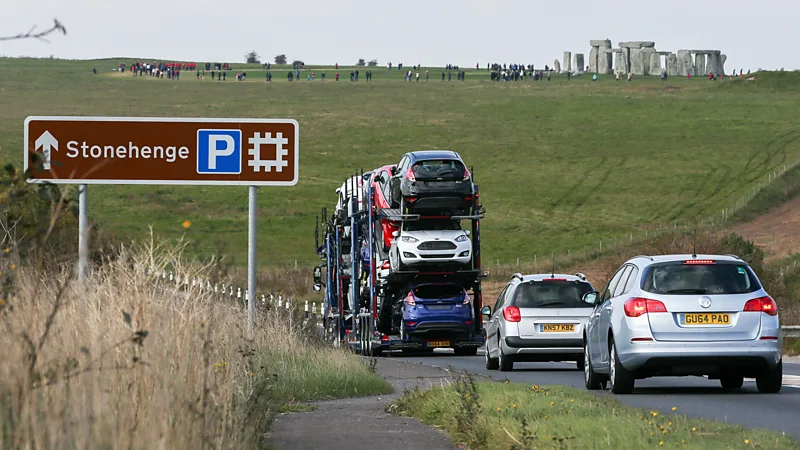Will Stonehenge lose its Unesco World Heritage status?
 Plans to construct a road tunnel beneath Stonehenge have resurfaced, sparking controversy over one of the UK's most contentious infrastructure projects. Each year on March 20th, people gather at Stonehenge to witness the sunrise on the spring equinox. However, this year, concerns loomed even before the event commenced.
Plans to construct a road tunnel beneath Stonehenge have resurfaced, sparking controversy over one of the UK's most contentious infrastructure projects. Each year on March 20th, people gather at Stonehenge to witness the sunrise on the spring equinox. However, this year, concerns loomed even before the event commenced.
In February 2024, a High Court judge dismissed a legal challenge against the proposed tunnel, clearing the path for its implementation. This decision was met with dismay by groups like the Stonehenge Alliance, who vehemently oppose the project. John Adams, the alliance's chairman, likened the construction to building a bypass over the Egyptian pyramids or a flyover across the Gardens of Versailles, emphasizing the significance of preserving heritage sites.
The idea of constructing a tunnel beneath Stonehenge has been in discussion since the mid-1990s, with projected costs soaring as high as £2.5 billion over the years. Proponents, including the UK's National Highways agency, argue that the tunnel will alleviate congestion on the A303 road, which currently runs past Stonehenge, providing motorists with a notable view of the ancient stones.
The proposed tunnel involves moving the main highway underground, slightly distancing it from the stones compared to the current road. The existing route would be transformed into a public right of way accessible to pedestrians, cyclists, and equestrians. National Highways asserts that this adjustment will enhance the visitor experience by restoring the Stonehenge landscape to a semblance of its original setting.
Unesco Condemns Proposed Stonehenge Tunnel Project
 Unesco has strongly criticized the proposed tunnel project, citing concerns that it would encroach substantially on the wider World Heritage Site area surrounding Stonehenge, which is a significant archaeological landscape largely left unexcavated. The organization has issued a warning, threatening to include Stonehenge on the World Heritage in Danger list. Such a designation marks the initial step toward potential delisting as a World Heritage site altogether.
Unesco has strongly criticized the proposed tunnel project, citing concerns that it would encroach substantially on the wider World Heritage Site area surrounding Stonehenge, which is a significant archaeological landscape largely left unexcavated. The organization has issued a warning, threatening to include Stonehenge on the World Heritage in Danger list. Such a designation marks the initial step toward potential delisting as a World Heritage site altogether.
John Adams, chairman of the Stonehenge Alliance, highlighted the gravity of this situation by noting that only three sites have ever been delisted from the World Heritage list. The UK has already experienced one such instance with the delisting of the Liverpool Maritime Mercantile City in 2021. If Stonehenge were to face a similar fate, it would not only be a national disgrace but also an international embarrassment for the UK.
Archaeological Concerns Surrounding the Stonehenge Tunnel Project
Professor Mike Parker Pearson, an archaeologist from University College London renowned for his expertise on Stonehenge, has raised significant apprehensions regarding the proposed tunnel project. He emphasizes that from an archaeological standpoint, there are grave implications associated with the construction.
The area earmarked for the tunnel holds profound archaeological significance, as it was once part of a densely populated settlement dating back to the same era as Stonehenge's construction. Pearson suggests that this settlement might have been inhabited by the very individuals who built the monument. Plowing a tunnel through this site risks irreparable damage to invaluable historical remnants.
Pearson estimates that around half a million artifacts could be unearthed during the construction process, yet without proper documentation, these artifacts would be removed from their context and relocated elsewhere within the reconstructed highway. This haphazard handling not only represents a substantial loss for contemporary archaeological research but also poses a misleading scenario for future archaeologists who may encounter these artifacts without understanding their original context.
Environmental organizations such as Friends of the Earth express deep concerns regarding the adverse impact of the construction project on wildlife and their habitats. Additionally, members of the Pagan community view Stonehenge as a sacred site and fear that the tunnel project could result in landscape desecration. Archdruid Lois Lloyd, in a 2019 letter addressed to the British government, articulated worries about the potential loss of harmony, disruption to energy connections, and diminished tranquility, all of which could impede the peaceful communion and expression of reverence, respect, and honoring of Higher Spirits and ancestors at the site.
Balancing Heritage Preservation and Community Needs at Stonehenge
 The traffic congestion on the A303, which passes by Stonehenge, severely impacts the quality of life for the local community and has broader implications for tourism and trade in the West Country. Growing up in Wiltshire, just a short drive from Stonehenge, I personally experienced the frustration of enduring long traffic jams on this vital route connecting London, Devon, and Cornwall.
The traffic congestion on the A303, which passes by Stonehenge, severely impacts the quality of life for the local community and has broader implications for tourism and trade in the West Country. Growing up in Wiltshire, just a short drive from Stonehenge, I personally experienced the frustration of enduring long traffic jams on this vital route connecting London, Devon, and Cornwall.
Contrary to a common belief that traffic slows due to people admiring the stones, Janice Hassett, founder of the Stonehenge Traffic Action Group, clarifies that the narrowness of the road contributes significantly to the congestion. In nearby villages like Shrewton, where the road narrows to just 8 meters at entrances, the volume of traffic poses safety risks for pedestrians who often find themselves managing traffic themselves.
The impact on daily life is profound, with residents like Hassett feeling compelled to schedule tasks around the unpredictable flow of traffic. This underscores the urgent need for infrastructure improvements to alleviate congestion and enhance community well-being.
Stonehenge is not merely an isolated monument but part of a broader prehistoric landscape rich with both stone and wooden structures, as highlighted by the research of archaeologist Mike Parker Pearson. His work suggests that while wooden structures, now decomposed, may have had ritual significance for the living, the enduring stone monuments were likely associated with the dead.
Today, as discussions about Stonehenge's future unfold, the conversation revolves around striking a balance between preserving heritage and catering to the needs of the present-day community. Hassett emphasizes the importance of finding equilibrium between honoring the legacy of the past and addressing the practical concerns of the living.














































































